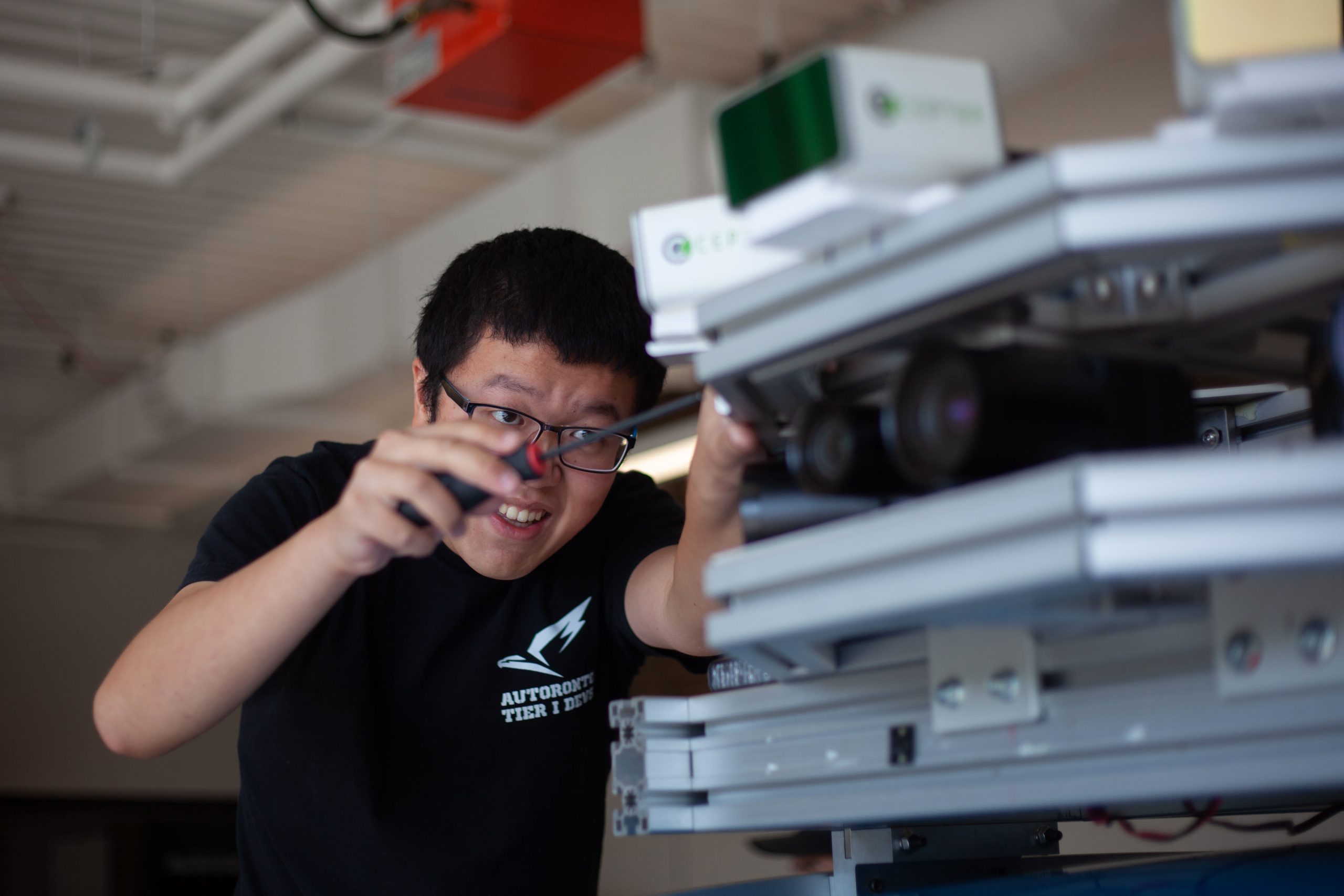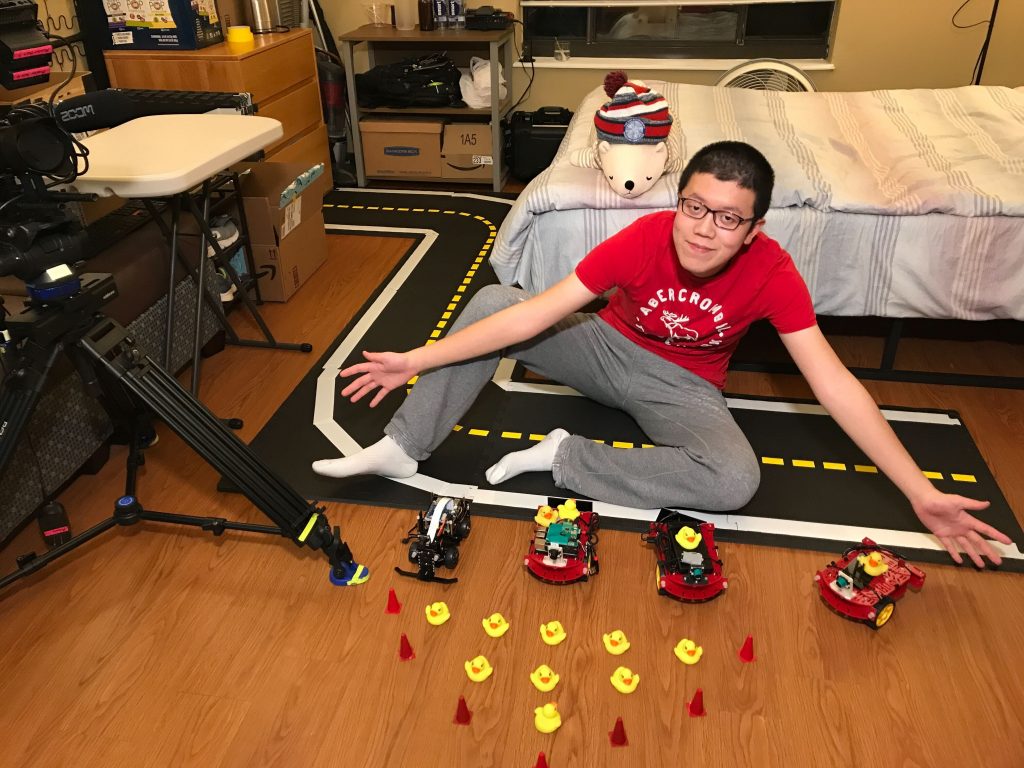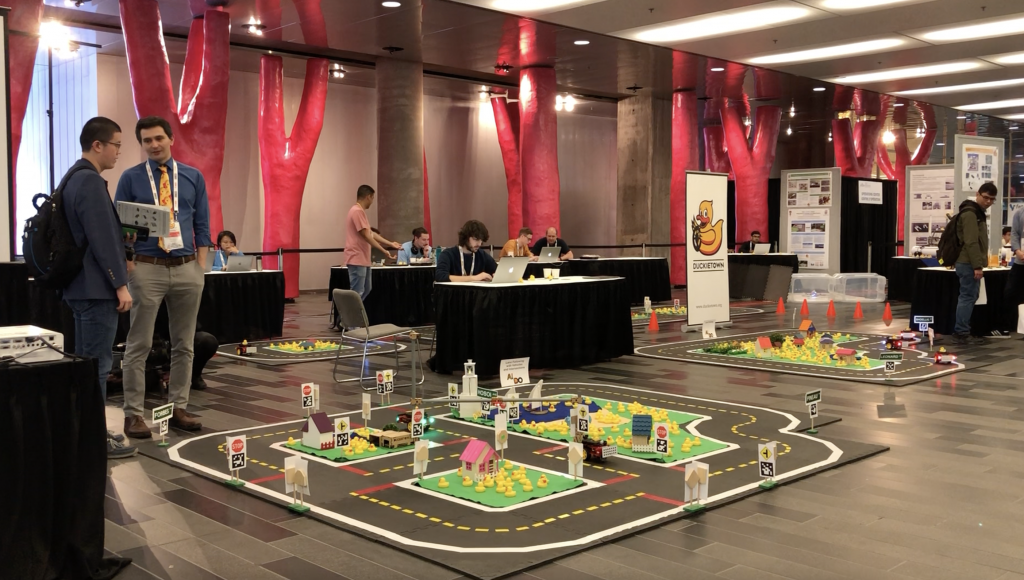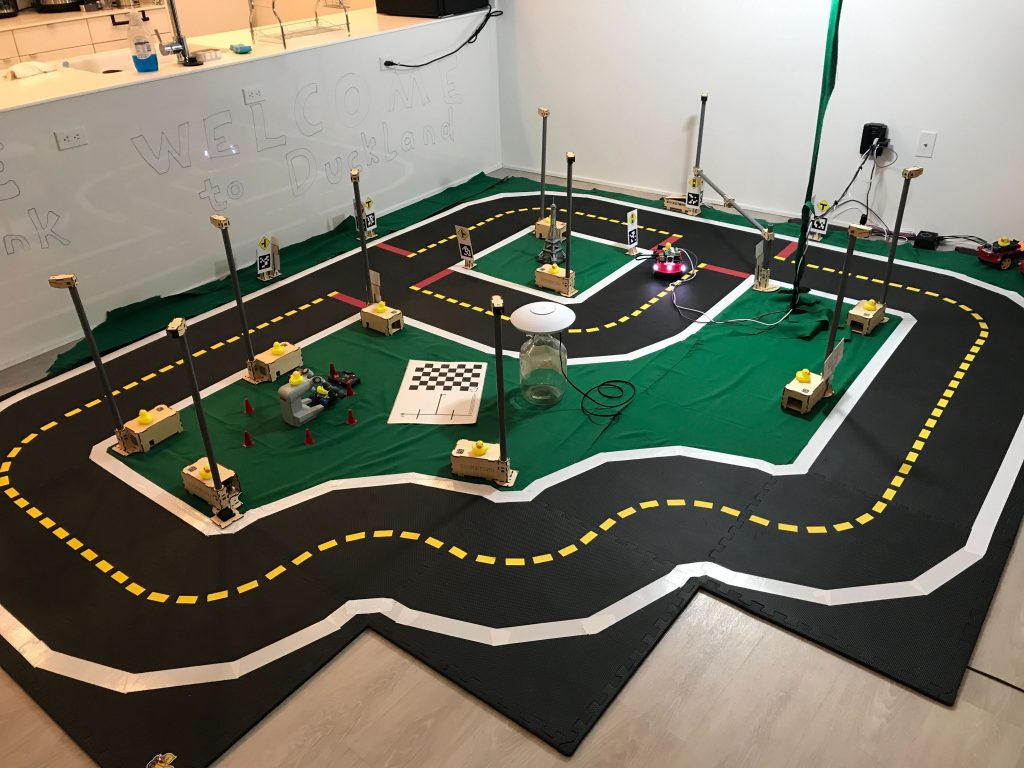 University of Toronto, February 3, 2022: “Frank” Chude Qian, A Master Student at the University of Toronto, shares with us his experience with Duckietown.
University of Toronto, February 3, 2022: “Frank” Chude Qian, A Master Student at the University of Toronto, shares with us his experience with Duckietown.How Duckietown set Chude (Frank) Qian on the road to autonomous vehicles
(reposted)
“Frank” Chude Qian is a Master’s student at the University of Toronto. He first encountered Duckietown at the International Conference on Robotics and Automation (ICRA) in 2019, and from that moment he decided that autonomous vehicles would have been his path forward.

Hello and thank you so much for having accepted to have this brief chat with us! Tell us about yourself and what you do.
Definitely! My name is Frank, and I’m currently a student at the University of Toronto. I’m in the second year of my program. I started as an Engineering Master’s student, and then I switched over to a Master of Science. My main focus is on developing the second generation of the University of Toronto’s autonomous vehicles that participate in the SAE Auto Drive Challenge. My work will end with the transition to the new vehicle, which will happen next year.
Thank you. Could you describe to us your first approach with Duckietown?
Yeah, definitely. So I was actually at ICRA 2019 wandering around and figuring out what to do with my life. I was taking part in another competition where I saw the Duckietown setup at the ICRA challenge [AI-DO 2]. It looked like great fun, I really loved the idea of how the project is and how it’s designed as a global initiative. You have people from different parts of the world trying to do the same thing, which I found inspiring.
Compared to the actual large-scale autonomous vehicles, Duckietown is an affordable option to learn mobility, and I really liked it. After I came back from ICRA, I just started looking at Duckietown and the AI Driving Olympics competition in more detail.

Nice! And how did that go?
In 2019, I started looking into what we could do with Duckiebots at my at Case Western Reserve University, where I was doing my undergrad studies. After learning about the AI-DO challenges, I was like, well, I’ll give it a try! It’s a challenge. I’m pretty competitive. So it took some trying and it ended up, I would say, good enough for where I was back then.
The other thing I looked into was Duckietown’s large code base for demonstrations because I was mainly working on answering the question: “what can you do with limited computing power for a system?”. I tested out the demos, and the Autolab idea, and tried to work on some improvements.
Back in 2019, there wasn’t a lot of work being done on that, unfortunately, but a good part of what was available had been tested, and the documentation was well-proofread. I then took over as a team lead for University of Toronto’s Autonomous Vehicle team, a role less involved with the project, but I still used Duckietown as a great introduction idea, of course.
We have a lot of students who are joining our team with almost no background in autonomous driving, and the Duckietown materials serve as a very good introduction idea to basically educate the younger students on the concept of autonomous vehicles.
Another thing I must say I learned a lot from is the Duckietown challenge and the evaluation side of the AI Driving Olympics, the evaluation server, and the idea of automated evaluation. I think I really gained a lot of experience and knowledge in testing and evaluating thanks to the Duckietown project.
Also along the way, I did another course project on a new baseline for the AI Driving Olympics or for what we call the conditional behavior cloning baseline. So that became another cross-project.
It is great to hear that Duckietown helped you get comfortable with real self-driving cars. Is there anything else you would like to add?
Actually, yes. I know Duckietown is also planning on expanding its materials to the K-12 education side of things. I think that’s a great idea to get more students and younger folks excited about autonomous vehicles. And I think that one day autonomous vehicles will be more and more popular on the road, and the job market for developing and maintaining autonomous vehicles is going to be huge.
I really like the effort, and in fact, that’s probably something I’ll try to do: once I graduate from my current program, I’ll try to hop back on and further the development effort of expanding it to K-12 education.

Would you recommend Duckietown to students or colleagues?
Yeah, definitely! And I want to even sort of move it a step further.: for those students who want to get into autonomous vehicle research or development, but maybe their university doesn’t have much funding support for these kinds of programs, Duckietown is such a great project to just adopt.
You just start with the initial concept, and I’ve seen amazing research done thanks to Duckietown. I personally tried a couple of ideas, too. The one thing Duckietown can provide that nothing else can, as far as I can tell, at the same cost range is the development of multi-robot collaboration and the swarm robotics idea.
I think both of these features just provide great advantages for researchers and for students. You know, it’s a Jetson Nano plus some hardware. Or you can use the Raspberry Pi version. I think for students in the universities which don’t provide as much funding this could be a great starting point. And I personally learned so much throughout those projects, and ultimately that lead me to where I am today. So, yeah, definitely I would recommend it.
What would you say is the biggest quality of Duckietown?
I think from my experience with the AI-DO, it’s not only the cost effectiveness, but also the scalability of Duckietown and the potential it has to make a difference in key industrial sectors of the future.
Thank you very much!
Note from the editors: a few months after this interview, Frank started working as Software Simulation Developer at General Motors. Congratulations, Frank!
